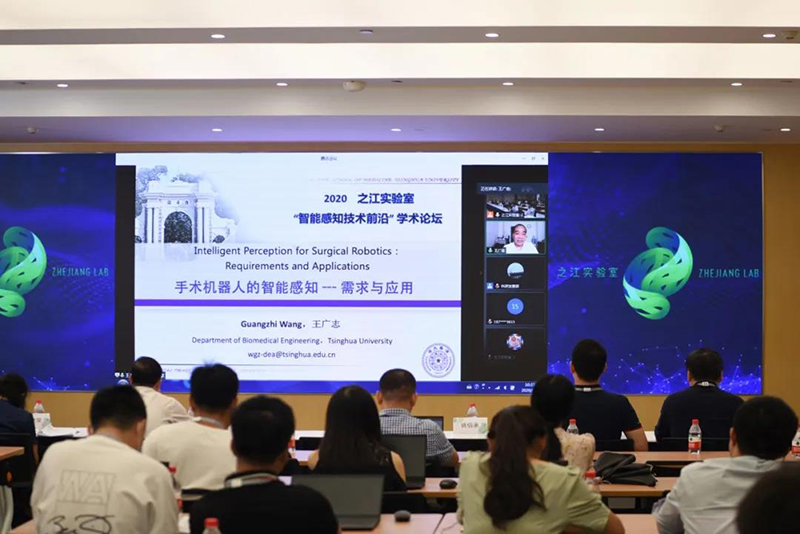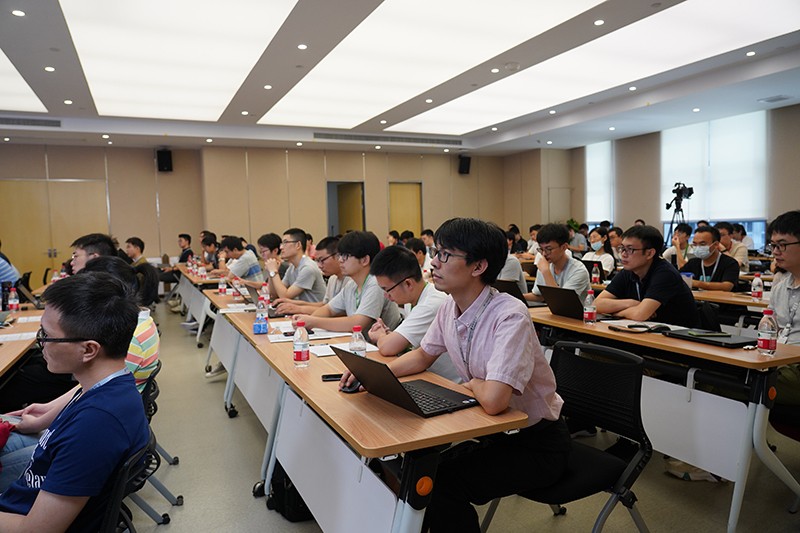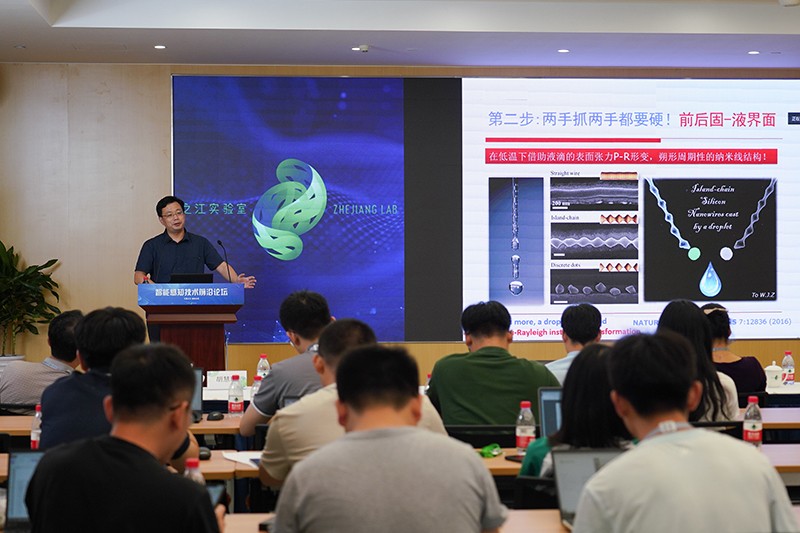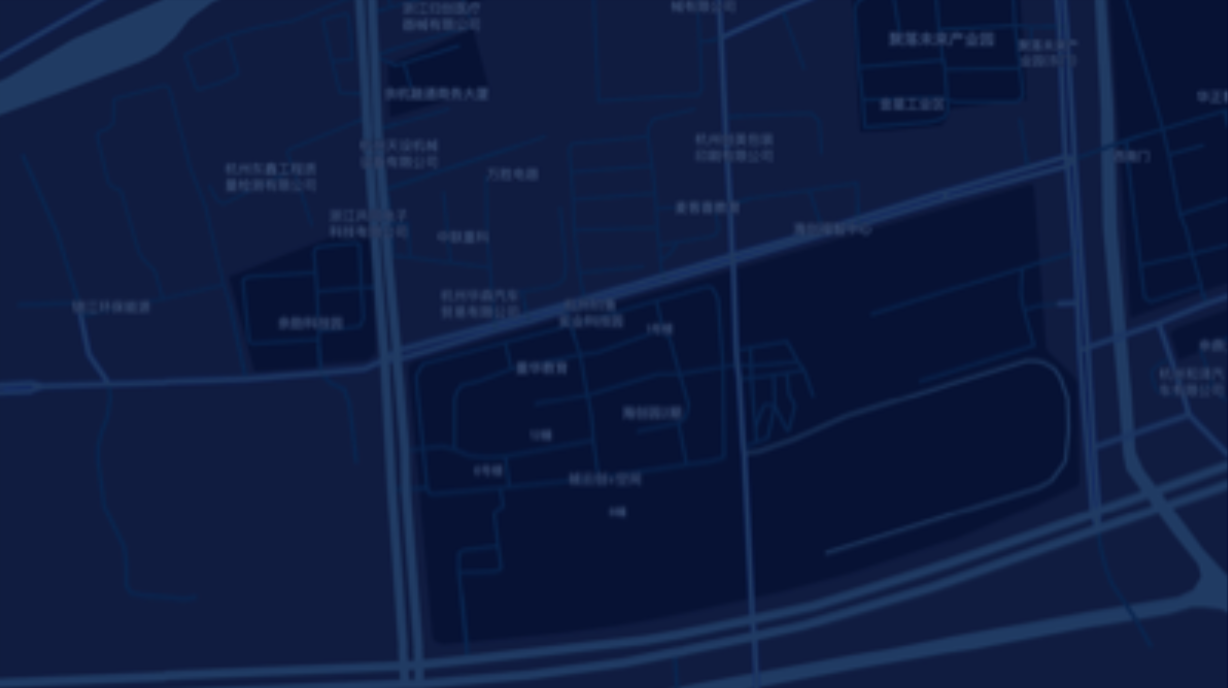




As an important area of artificial intelligence, perceptual intelligence based on perceptual capabilities such as sight, hearing, and touch has achieved many breakthroughs in recent years. With the rapid development of perception technology, the perceptual interaction between different entities is becoming increasingly intelligent. Relevant applications, such as voice recognition, autonomous driving, and surgical robots, are changing our lives profoundly, and facilitating our economy and society to leap forward.
In order to discuss the trends of cutting-edge intelligent perception technologies and provide an in-depth interpretation of new theories and technologies, Zhejiang Lab held a symposium on cutting-edge intelligent perception technologies, to discuss issues and future trends in related areas such as micro/nano optics, quantum technology, and optical fiber sensing.
The symposium brought together a number of academic gurus in the field of intelligent perception, including: Wang Zhonglin, foreign academician of the Chinese Academy of Sciences; Wang Lihong, academician of the U.S. Academy of Engineering; Wang Jianyu, academician of the Shanghai Institute of Technical Physics, Chinese Academy of Sciences; Sun Fangwen, professor at the University of Science and Technology of China; Yu Linwei, professor of Nanjing University; Zhou Zebing, professor at Huazhong University of Science and Technology; Yan Yonghong, professor of the Institute of Acoustics, Chinese Academy of Sciences; Wang Guangzhi, professor of Tsinghua University; Yao Baicheng, professor of the University of Electronic Science and Technology of China; Zhu Tao, professor of Chongqing University; Zhejiang University scholars Liu Xu, Jin Chaoyuan, and Qiu Jianrong; and Doctor Luo Jie from Yangtze Optical Fiber and Cable. They shared academic insights and made in-depth communication with the researchers of Zhejiang Lab.
At the symposium, CAS foreign academician Wang Zhonglin shared his research results in the field of nano-generators through a report entitled "Energy and Sensing in the Era of Artificial Intelligence". Academician Wang spoke about how nanogenerators can be used as speed and acceleration sensors, sound sensors, and microfluidic sensors in many fields, including micro-nano energy, self-driven sensing, high-voltage power supplies, and blue energy. It represents a typical cross-disciplinary research field.
"As Academician Wang mentioned in the report, frictional charge is a negative effect. Accidentally, he found out that the friction between the plastic sheets, which are used to modify the surface of nano structures, can generate static electricity. Moreover, the resulting voltage and current are dozens of times more than what we used to generate with piezoelectricity. Later on, he verified this phenomenon through experiments. He seized this unexpected opportunity and conducted deeper research, which started a worldwide research boom," said a researcher from the Zhejiang Lab Research Center for Optical Fiber Sensing after the symposium "Academician Wang's research on nano-friction power generation and its applications will be of great benefit to artificial intelligence applications such as smart wear."
Wang Lihong, an academician from the U.S. Academy of Engineering, shared a report titled, "The World's Deepest and Fastest Imaging Camera: Photoacoustic Tomography And Compression Ultrafast Imaging". "The compression ultrafast imaging technology shared by Academician Wang is the highest resolution intravascular imaging technology, so it has a broad technical prospect in various directions, such as cancer diagnosis and organ lesion analysis. At the same time, the technology can also be applied in various fields, such as aerospace. It is believed that with the in-depth development of intelligent sensing technology, its tremendous technical advantages will definitely benefit mankind," said Guo Qiang, at the Zhejiang Lab Research Center for Quantum Sensing.
As a major science and technology innovation platform focusing on intelligent science and technology, Zhejiang Lab has made an in-depth layout in the field of intelligent perception. The lab has established the Institute of Intelligent Sensing, which consists of four research centers - Quantum Sensing, Super Sensing, Smart Chips, and Fiber Optic Sensing - with the mission to carry out cutting-edge basic research and key core technology research on strategically needed precision measurement and advanced sensing technology innovation.
Bao Hujun, Vice-president of Zhejiang Lab, said at the symposium that the Lab has formed a scientific research structure focusing on the three-dimensional integration of human-machine-physical information science and technology systems, with intelligent perception, intelligent networks, intelligent computing, and intelligent systems as the main fields. At present, the Institute of Intelligent Perception has taken shape, and the experimental conditions at the South Lake Park will be completed by the end of this year. The lab will open its mind to cooperate with experts in related fields from all over the world to carry out research and jointly promote the development of intelligent perception technology.











